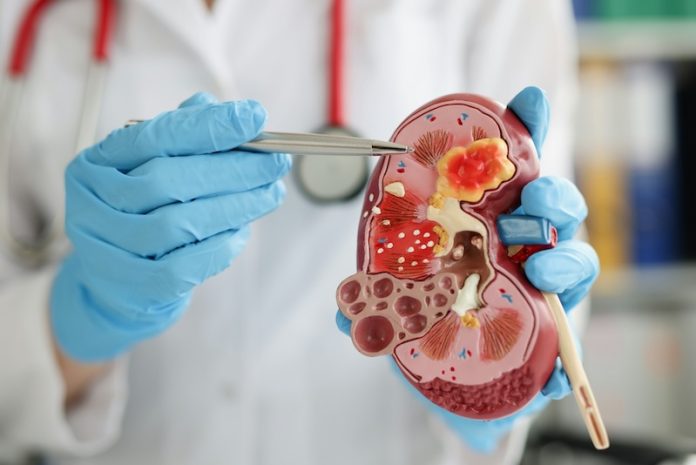
Living with diabetes often means dealing with a wide range of health problems. One of the most serious is kidney disease, which affects around 40% of people with diabetes in the United Kingdom. That’s nearly 5 million people who may face tough treatments like dialysis or even kidney transplants.
But a new study from researchers at the University of Bristol offers fresh hope. It looks at how a well-known medicine called spironolactone, often used to lower high blood pressure, could also help protect the kidneys in people with diabetes.
Spironolactone works in part by stopping protein from leaking into the urine—an early sign of kidney damage. However, it’s not a perfect solution. One of its main problems is that it can cause too much potassium to build up in the blood, which can be dangerous. That’s why doctors have to be careful about who takes it and for how long.
In this new study, the researchers wanted to understand exactly how spironolactone protects the kidneys. They focused on a very thin, fragile layer that lines the blood vessels in the kidneys. This layer is called the glycocalyx. Think of it like a soft cushion that helps protect blood vessels from damage.
The team studied kidney samples and made two big discoveries. First, they saw that diabetes harms the glycocalyx. Second, they found that spironolactone helps protect this layer from damage.
In an unexpected turn, the scientists also found that certain enzymes—called matrix metalloproteases—were causing much of the damage. These enzymes break down the protective glycocalyx layer, speeding up kidney problems in people with diabetes.
Here’s the exciting part: spironolactone appears to slow down these harmful enzymes. This means it doesn’t just stop protein loss in urine—it may also protect the kidneys in a deeper way by preserving their structure.
This discovery is important because it opens the door to better treatments. Right now, spironolactone is helpful but not perfect. Its side effects—especially the risk of high potassium—limit its use. But if scientists can develop new drugs that block these enzymes without the side effects, it could lead to safer and more effective ways to treat diabetic kidney disease.
While researchers continue exploring new treatments, people living with diabetes can take steps to keep their kidneys as healthy as possible:
- Control your blood sugar: High blood sugar damages kidney filters over time.
- Keep your blood pressure under control: Aim for 130/80 mm Hg or lower.
- Eat a healthy diet: Focus on fruits, vegetables, whole grains, and lean protein. Limit salt and fatty foods.
- Exercise regularly: Try to get at least 30 minutes of movement most days.
- Quit smoking: Smoking damages blood vessels and increases kidney disease risk.
- Take your medications: Always follow your doctor’s instructions.
- Check your kidney health often: Get regular blood and urine tests to catch problems early.
Dr. Matthew Butler and his research team, whose findings were published in JCI Insight, have made a valuable contribution to the future of diabetes care. Their work helps explain how spironolactone works on a deeper level—and why it might be even more useful than we thought.
This kind of research gives real hope. It helps doctors better understand the disease and opens up new ways to protect kidney health. In the future, treatments may be more targeted, with fewer side effects, and more people may avoid the toughest outcomes like dialysis.
For now, a healthy lifestyle, good blood sugar and pressure control, and regular check-ups remain the best defense. But thanks to studies like this one, we’re one step closer to easing the burden of diabetic kidney disease and improving quality of life for millions of people.
If you care about diabetes, please read studies about a cure for type 2 diabetes, and these vegetables could protect against kidney damage in diabetes.
For more information about diabetes, please see recent studies about bone drug that could lower risk of type 2 diabetes, and results showing eating more eggs linked to higher risk of type 2 diabetes.
Copyright © 2025 Knowridge Science Report. All rights reserved.



